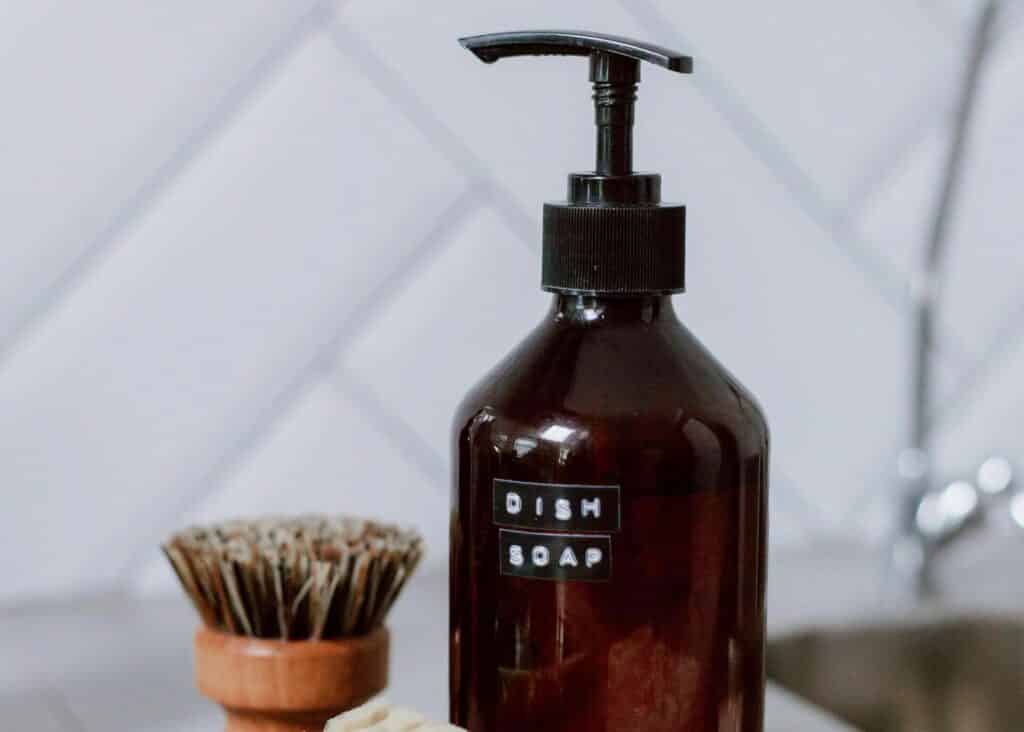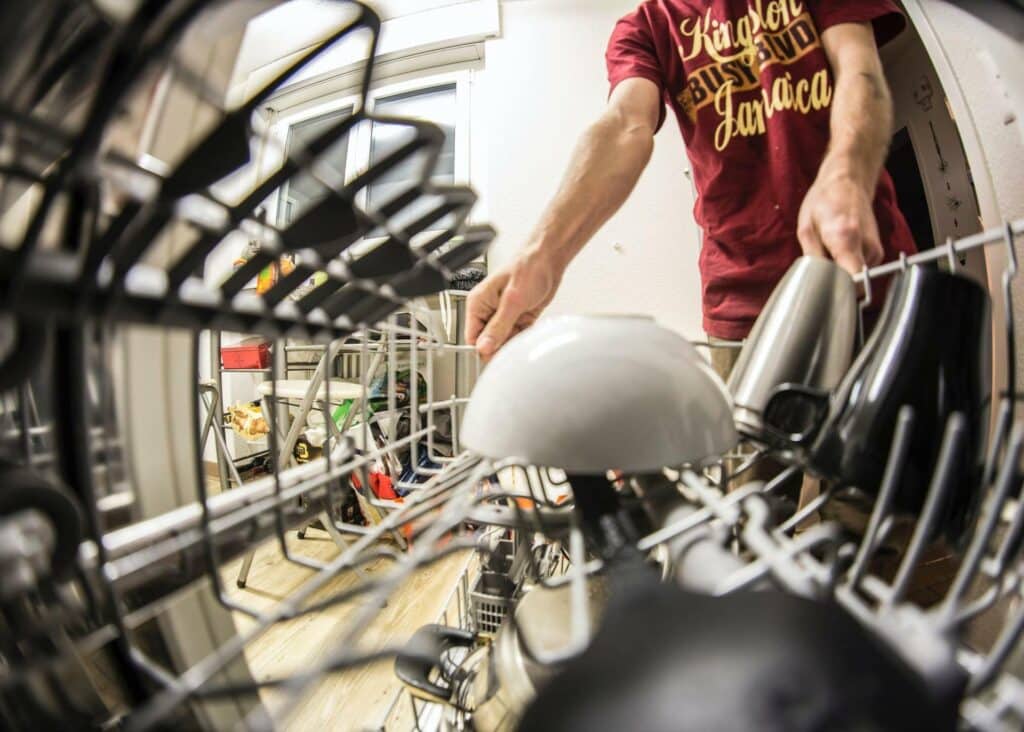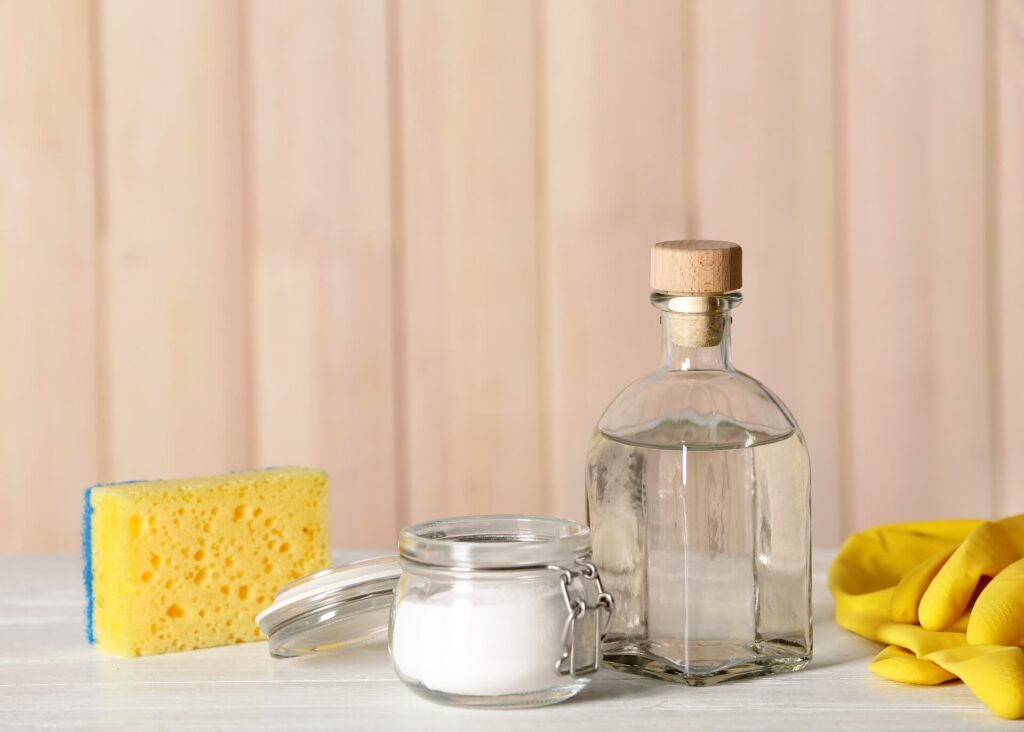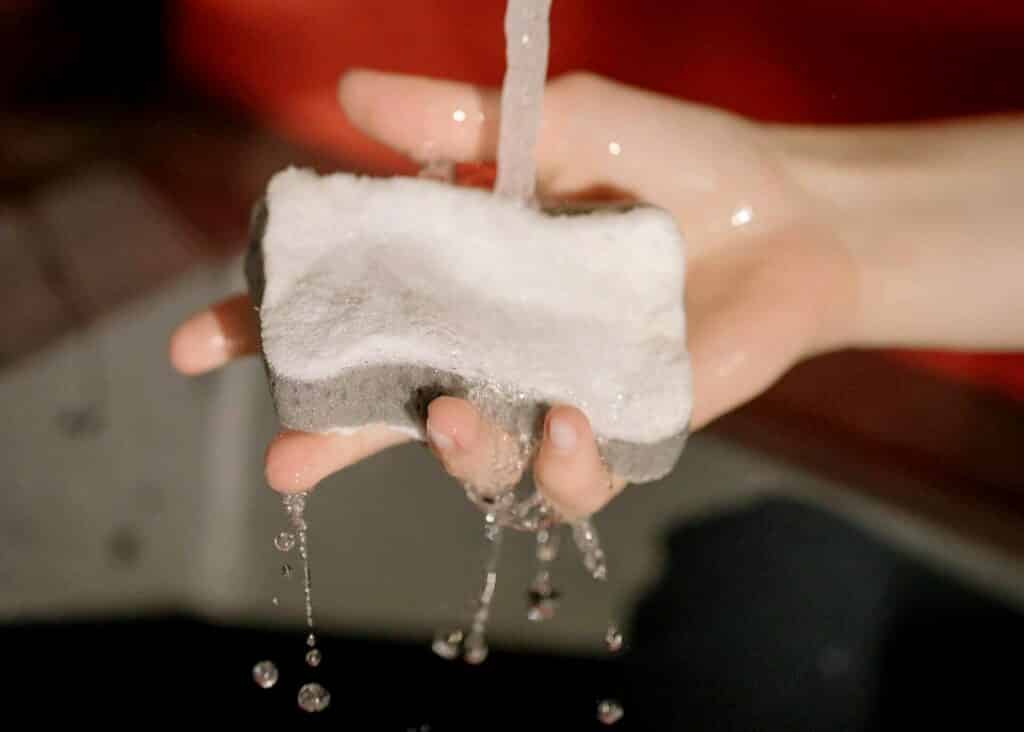A metal coffee filter might be the most durable filter out there. However, if you are used to just throwing away paper filters after brewing your coffee, cleaning a reusable one might be hard to get used to. However, using a metal coffee filter will save you quite a bit of cash, and it’s not as tedious as you think. So, let’s learn how to clean a metal coffee filter to ensure that it works well and that you can enjoy perfect coffee every time you brew it.
Why do metal coffee filters need to be cleaned?
You can buy reusable coffee filters for different coffee brewing devices, including Hario V60 and Chemex. They are a great convenience as you don’t need to shop for paper filters regularly and save some cash. It’s also better for the environment to minimize disposable products (unless you are composting Chemex paper filters). A permanent filter option is especially handy with Keurig machines that otherwise produce a lot of plastic waste from single-use coffee pods.
Brewing coffee with a metal filter can also get you coffee with a bolder, richer flavor than you would get using a paper filter. This taste is similar to what you would get from a French press with a built-in multi-use filter.
However, maintaining a reusable coffee filter requires a little more effort. First, after discarding your coffee grinds into the bin (not into the sink, as coffee can clog the plumbing!), you need to clean your metal filter regularly because fine coffee grounds and coffee oils that accumulate there will eventually clog the filter, making it harder or even impossible to brew your coffee.
If you live in an area where hard water is a problem, you should thoroughly clean your metal coffee filter. For this, you may need the descaling action of the vinegar.
An accumulation of old coffee grounds or oils on your reusable coffee filter can result in your coffee tasting watery. It can also facilitate the growth of mildew or other microorganisms. You certainly don’t want to have that in your cup of coffee.
Mold or other impurities on your coffee filter will also affect the taste of your coffee. If you are allergic to mold, you might experience allergy symptoms. In addition, contaminated coffee can cause you to experience digestive disturbances.

How do you clean a metal coffee filter?
There are a few different methods of cleaning a metal coffee filter. They are ranked here from least complicated to those that require more effort.
The best approach for you may vary based on how dirty your reusable coffee filter is. However, keep in mind that the more regularly you give your coffee filter a quick cleaning, the less often you will have to clean it more thoroughly or, even worse – get it clogged beyond repair.
Remember that even though getting your metal filter clean is important, you also need to do it safely. Natural substances like baking soda, vinegar, and the citric acid found in lemon juice are all great choices to help you scrub it out. Gentle dish soap works too, but avoid harsh chemicals that may corrode the filter.
Rinse it with water
A little bit of effort regularly can save you time and money in the long run. The easiest way is to rinse a metal coffee filter with water to remove any remaining coffee grounds when you empty the filter after use. Then, let it air dry before brewing your coffee again.
You may want to set up a routine where you rinse your coffee filter with water every day and then clean it in a more involved way once a week or so. While water alone might not be enough to eliminate the coffee oils accumulating in the filter, it is better than doing nothing.
Use dish soap
Warm soapy water should be sufficient for routine cleaning of a reusable metal coffee filter if it looks like it needs more than just rinsing. You can wash the filter just like you would wash the dishes. Soak it in dish soap and hot water solution to loosen debris first, and then gently scrub the filter with a cloth or sponge.
If you are already handwashing other dishes every day, you might as well get your coffee filter clean as part of your regular dishwashing routine. This might be the most consistent way to approach cleaning your reusable coffee filter.
Rinse the filter with water when you are done, just like you rinse the rest of your dishes. Then, let it air dry completely.

Clean coffee filter with baking soda
Baking soda (or sodium bicarbonate) is a great way to clean a coffee filter. However, you should know what kind of metal your reusable coffee filter is made of before trying this cleaning method. While baking soda is safe to use with stainless steel, it can damage an aluminum filter.
If you determined that your filter is not aluminum, soak it for a few minutes in hot soapy water first, and then gently scrub it with a small amount of dry baking soda. Next, use a toothbrush or similar soft brush to remove stains and debris clogging your filter. You can also make a paste of baking soda and warm water, and then use a cloth to scrub your filter with that gently.
If you pick the baking soda option to clean the coffee filter, it is essential to rinse it thoroughly afterward. You don’t want baking soda seeping into your coffee when you brew it next.
After you rinse the filter, let it air dry completely.
Use the dishwasher
Some metal coffee filters are dishwasher safe, but you must check if it is the case with the filter you have before you go for it. Aluminum reacts badly in the dishwasher, so you will have to stick to washing by hand if your reusable filter is made of aluminum.
Stainless steel metal filters generally are dishwasher safe. Gold filters can also be washed in a dishwasher on the top rack. While they can be more sensitive to the acid of coffee than stainless steel filters, it is sufficient to rinse them with water after each use and then wash them in the top rack of the dishwasher once a week. Cleaning your filter this way will help prevent the growth of mold or other microorganisms on the filter.

Soak in a vinegar mixture
White vinegar is a go-to option if your metal filter needs a deep cleaning. You might have reached this point if you feel like coffee oils are blocking the filter’s pores and coffee does not come through it.
Using vinegar when you clean your coffee filter is also essential if you suspect mold on your filter, as vinegar has antifungal properties. However, you should use white vinegar and avoid other kinds of vinegar like balsamic vinegar or apple cider vinegar that could leave your filter sticky rather than clean.
Mix equal parts of white vinegar with hot water, and leave the filter to soak in it for at least a few minutes to loosen any debris. If the filter is extremely filthy and clogged, you might even leave it to soak in the vinegar water overnight.
After soaking it, gently scrub the metal filter with a soft toothbrush. For stubborn stains, you might even scrub with a bit of baking soda while the filter is soaking in the vinegar solution. The chemical reaction between baking soda and vinegar will fizz, giving extra power to your cleaning.
When you are done, thoroughly rinse the filter with water. Then, let it dry.
Mildew can also accumulate on parts of a coffee maker other than the filter basket. Therefore, when you are concerned about mold and cleaning your filter basket with vinegar seems appropriate, you may also want to run a vinegar solution through your drip coffee maker to clean the inside of the machine.
Make a solution of equal parts vinegar and water. You could add a little bit of lemon juice for the added cleaning power of citric acid. Then, pour it into the machine and run a brew cycle. Discard the vinegar water afterward. Then, run at least one brew cycle of plain water through your coffee maker to rinse it.

Use an ultrasonic cleaner
When you are not satisfied with the results of cleaning your metal filter with baking soda or vinegar, an ultrasonic cleaner can be an alternative way to try. Ultrasonic cleaners are better known for cleaning things like tools and jewelry, but they could just as easily remove debris that clogs a coffee filter.
Pour water and some dishwashing soap into the ultrasonic cleaner tank, add your metal coffee filter, and turn it on. The ultrasound waves then agitate the soap and water, making debris and oils lose from your filter.
Things to avoid when cleaning a metal coffee filter
Metal coffee filters are built to last. However, there are a few things you need to keep in mind so that you do not cause more problems than you solve when cleaning the permanent coffee filter.
The potential problems may arise if you don’t understand the limitations of different types of metal. For example, aluminum is a finicky metal that chemically reacts with other things, including washing detergents. So you might be better off just using mild dish soap if you have an aluminum filter.
Here are a few essential tips to remember:
- Do not use baking soda on aluminum filters.
- Do not scrub metal coffee filters with a metal sponge.
- Do not put aluminum filters in the dishwasher.
- Avoid using harsh cleansers on any type of metal filter.

Are metal coffee filters healthy?
Paper coffee filters can soak up some components of coffee that have the potential to raise your cholesterol level. Unfortunately, a durable, reusable metal filter doesn’t get this particular benefit. Coffee made with a reusable filter can have up to 30 times the concentration of these cholesterol-raising substances compared to the coffee made with a paper filter.
A study published in the European Journal of Preventive Cardiology, which followed the participants for an average of 20 years, found that those who drank filtered coffee had a lower risk of death than those who did not drink coffee at all and those who drank unfiltered coffee.
While this may be something you want to consider if you already struggle with your cholesterol or have other significant risk factors in that regard, using a metal coffee filter will probably not cause a massive problem by itself.
On the other hand, some claim that cafestol and kahweol, the main cholesterol-raising substances in coffee that paper filters reduce, have anti-cancer properties.
Another advantage a reusable filter has over a paper filter is that paper coffee filters are sometimes bleached with chemicals like dioxin that can leach out into the coffee. While you probably won’t notice the effects of trace chemical exposures of this sort overnight, everything adds up eventually. Hence, it’s always good to minimize your exposure to toxic chemicals when you can.
The health risk of a permanent coffee filter could be ingesting mildew and other microorganisms accumulated on a dirty filter. But, of course, if you have read this far, you already know you need to clean your metal coffee filter regularly. So as long as you follow the tips given here, you should be fine on that front.
Maintaining a reusable coffee filter is easier than you think it is. Over time, you may discover that regular cleaning helps you consistently brew coffee that tastes good. You can use the same cleaning methods to clean other coffee gadgets, so try a few of them, and build your confidence in what works for you.
